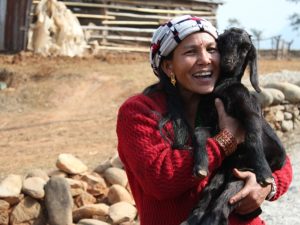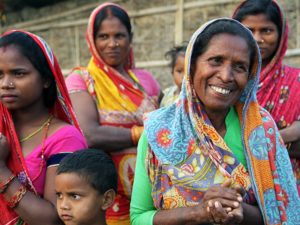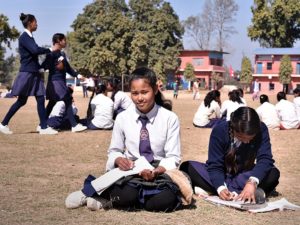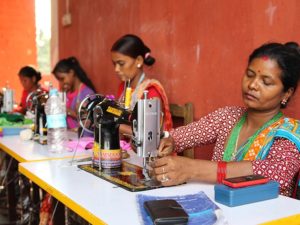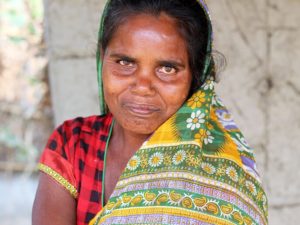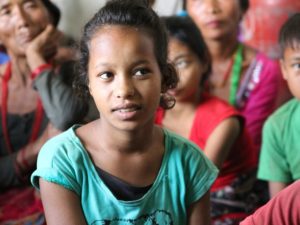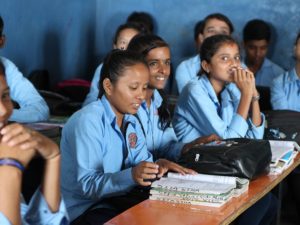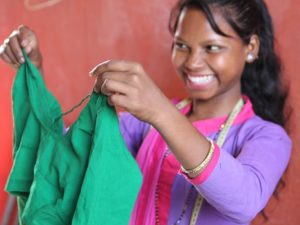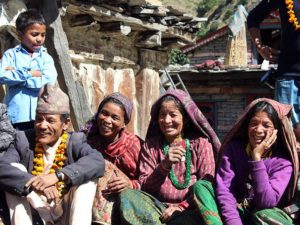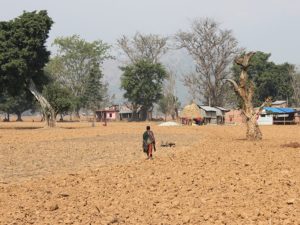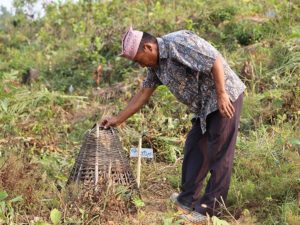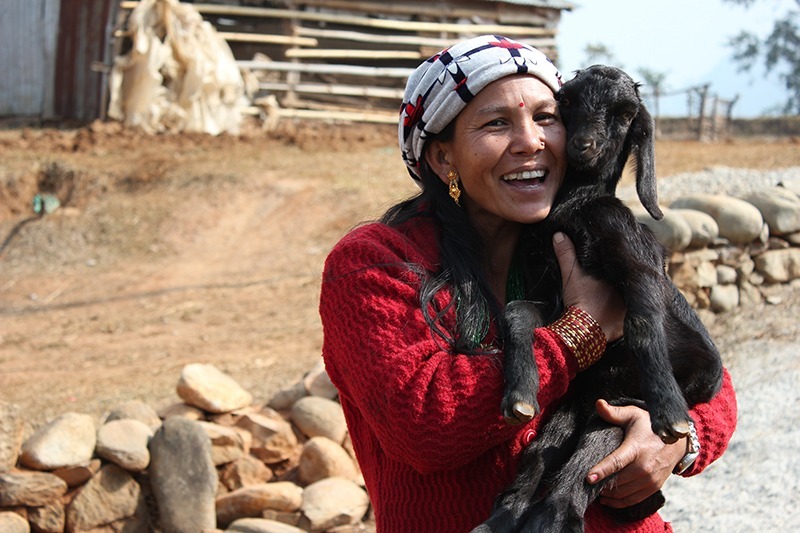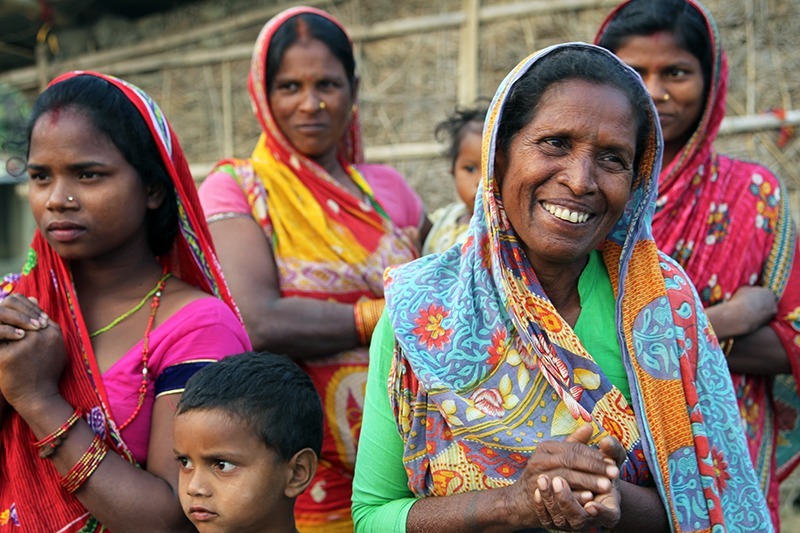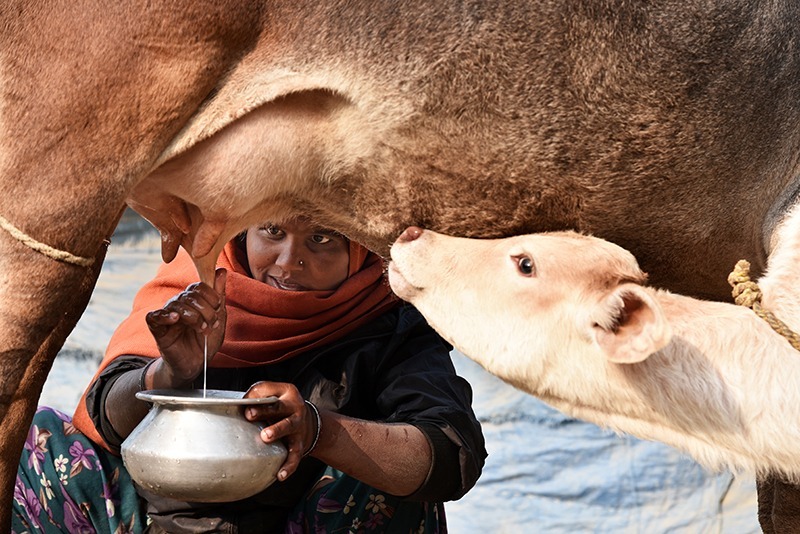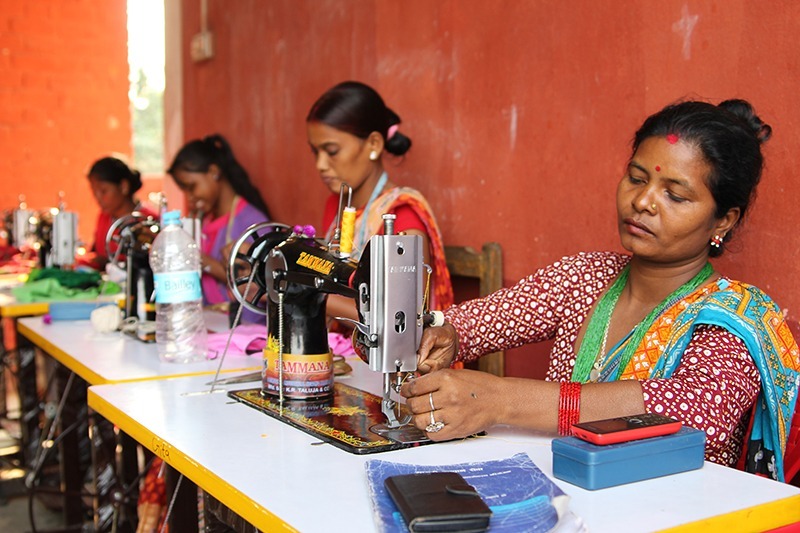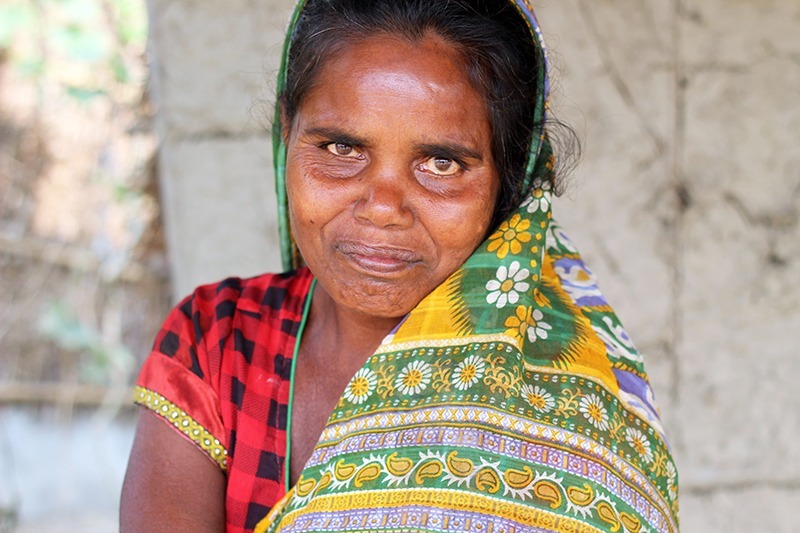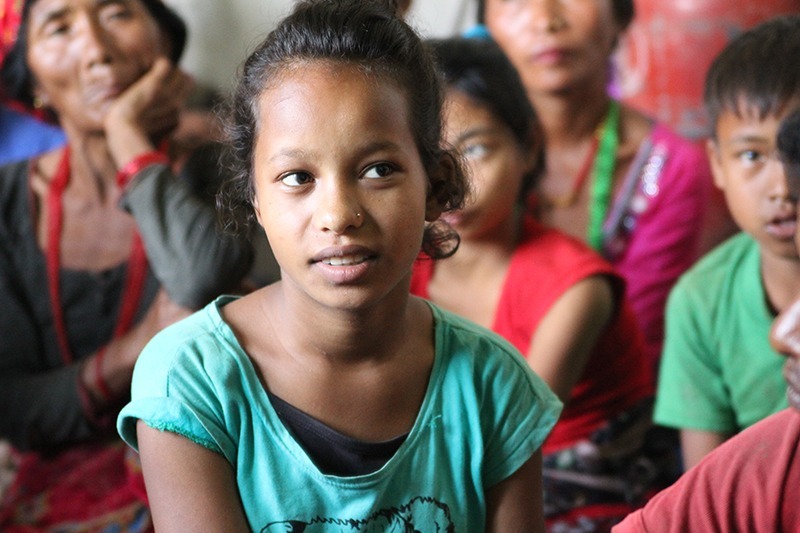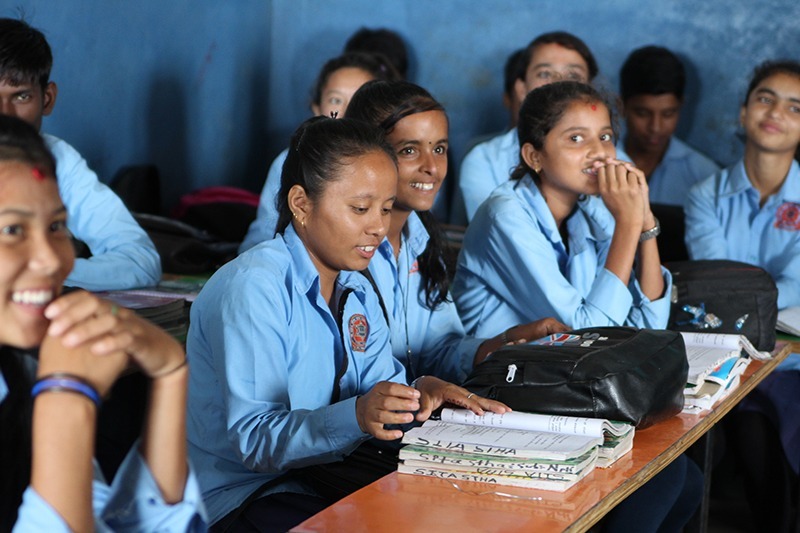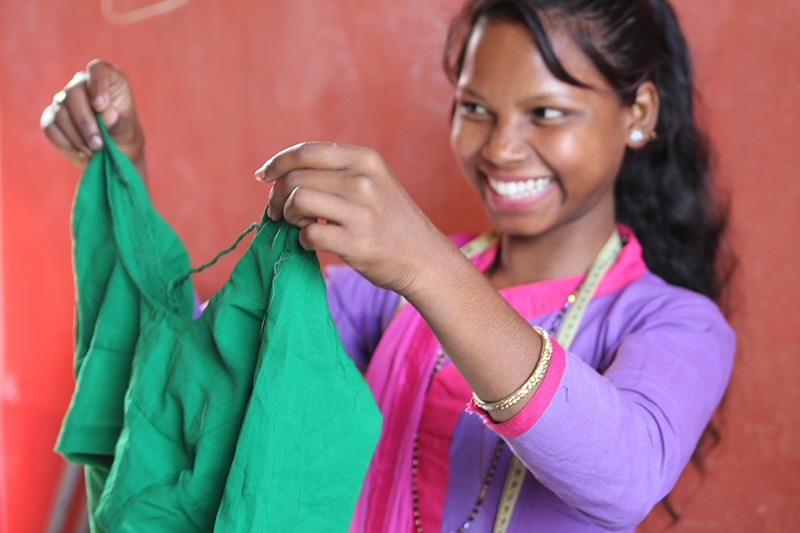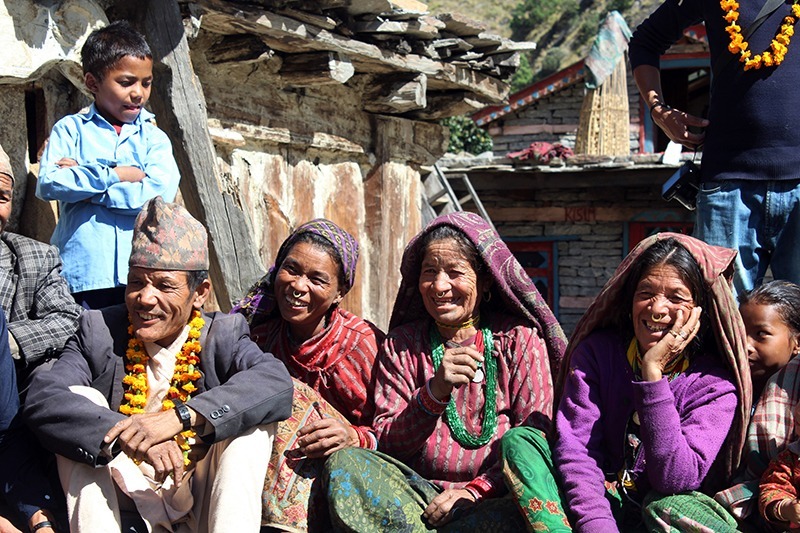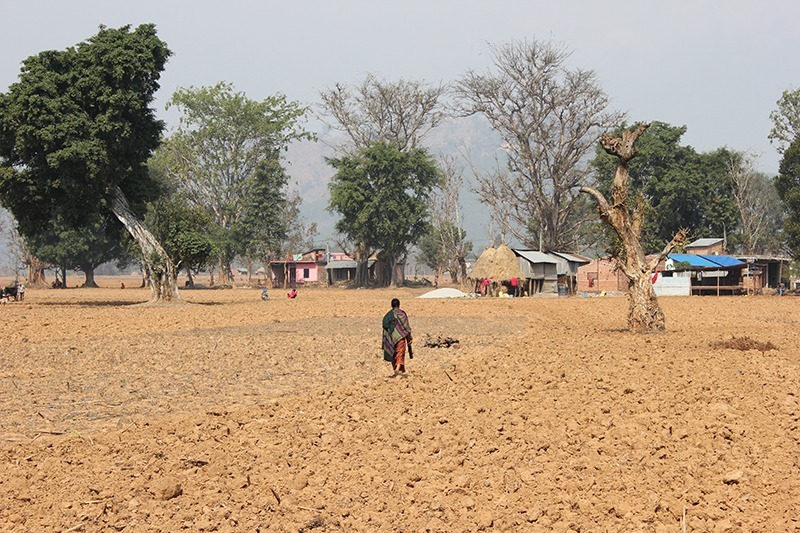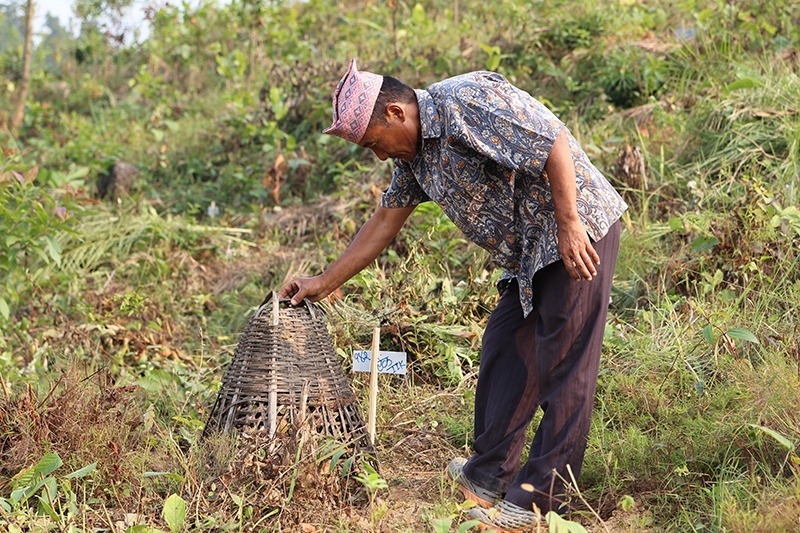
You can get to know more about Felm’s work in Nepal by visiting our country office’s own website www.felmnepal.org
Nepal is a Himalayan mountain state with eight of the world’s 10 highest peaks, located between China and India. The signing of a peace agreement in 2006 ended a 10-year civil war, but nine years passed before Nepal presented its new progressive constitution that sets in place a federal structure.
Although the massive earthquakes in 2015 damaged infrastructure and affected many lives, there is optimism for political stability, good governance, and inclusive economic growth. Still, the implementation of the equal rights guaranteed by the constitution remain challenging, given the legacy of caste-based discrimination and other inequalities in the Nepalese society.
Nepal is culturally very diverse, with more than 100 ethnic groups. Around one fifth of the population lives in poverty, alleviated to some extent by the money transfers from millions of Nepalese migrant workers in the Gulf countries and Asia. Nepal remains in the UN list of the least developed countries.
Implementing partner: Centre for Mental Health and Counselling
Project description
The program evaluation study of previous phases of Child Mental Health Programme (2005-2008, 2008-2012) implemented by CMC-Nepal has showed 14.78% of children and adolescents have emotional and behavioural problems and they need psychological intervention. The recent study (2020) carried out by the Nepal Health Research Council has revealed that the mental health problems are found among 5.2% children of the age group from 13 to 17 years, whereas these problems increased to 10% above 18 years. School going children belongs with ultra-poor family and children with disabilities are in risk to develop with mental health and psychosocial issues.
The project development goal
The project aims to increase access to improved quality learning by school going children and adolescents. The project has positive affect to psycho-social promotion of school going children and adolescents, and positive mental health of teachers and parents has a direct link with quality learning of the children.
Examples of key activities
CMC facilitates classroom based psychosocial intervention, early identification of students’ emotional and behavioral problems and availability of short-term psychosocial counseling at project schools, child club mobilisation, adolescent girl health awareness, parenting education, empowerment of child friendly school facilitation action group. At central level, CMC collaborates with Government of Nepal.
Implementing partner: Local Initiatives for Biodiversity, Research and Development (LI-BIRD)
Project description
Despite some progress in reducing the poverty, Nepal remains one of the poorest countries in the world. The causes of poverty in Nepal are complex and multidimensional, however, one of the key factors is attributed to the state of the agriculture sector. The agriculture sector employs 65% of the population and contributes 24% of the national GDP. However, productivity of the agriculture sector is low and not able to feed smallholder families.
The Sudurpaschim Province selected for project implementation is one of the least developed Provinces in Nepal. The Province is characterized by marginality, inaccessibility, fragility, and a high rate of poverty. The Province is also characterized by a high rate of male migration, especially youths, in search of overseas employment, leading to increased feminization of agriculture.
The project development goal
Improved and diversified food and nutrition security and income opportunities in targeted communities. Improved climate change adaptation and disaster risk management in targeted communities.
Examples of key activities
Project will organize and capacitate beneficiaries, provide them skills, resources and collaborate with local governments and other key stakeholders to create an environment to access support and services.
Implementing partner: Group of Helping Hands (SAHAS) Nepal
Project description
Karnali Pradesh (Province) has the highest rate of multidimensional poverty, with about 50% multidimensionally poor, high rate of illiteracy, high rate of migration, predominance of Dalits (23%) and 3.5% person with disability population. These problems are exacerbated by climate-induced hazards, which are further compounded by the recent COVID-19 pandemic. Covid-19 led the return of more than 50,000 migrant workers from India with no alternative income sources resulting in economic crisis and despairing life in the province.
The project development goal
Increased food production, nutrition and income through climate resilient, ecological agriculture and green market enterprises. Improved capacity in implementing climate resilient and disaster risk reduction plans and programmes.
Implementing partner: Centre for Mental Health and Counselling
Project description
Nepal is the poorest country in South Asia and the 17th poorest in the world. Migration for foreign employment has become a major source of income for Nepalese. Though this has brought economic profits to many Nepali households and the nation, it has come with a cost. The dark side of psychological stress and mental health problems are shadowed, causing family disintegration, spousal separation emotional and behavioural problems in children.
The project development goal
Migrant workers and their families have improved their mental health and psychosocial wellbeing improved. Local government has replicated the best practices of project with sustained allocation or resources.
Examples of key activities
Organizing group sessions with the wife’s and mother of migrant workers. Providing mental health and psychosocial counselling service from the government health facility to families of migrants in distress. Forming peer support group for migrant workers and their families.
Implementing partner: KOSHISH, National Mental Health Self Help Organization
Project description
Persons with psychosocial disability face daily barriers due to inhumane treatment, discrimination and exclusion in society which is further exacerbated by lack of strong disability rights and protection laws. Even though some progress is made, for example through the promulgation of Constitution of Nepal, through the work of the National Federation of Disabled Nepal (NFDN) and through the partnership in a project between Felm and KOSHISH, there is still a lot to do regarding this. For example, the programs developed for persons with disabilities have still not incorporated psychosocial disability.
The project development goal
Psychosocial disability is mainstreamed in the governance of Sudurpaschhim Province and Karnali Province through policy engagement, social inclusion and self-advocacy
Examples of key activities
- Forming peer support groups.
- Organising capacity building trainings to develop advocacy skills.
- Forming delegations to the local and provincial duty bearers to demand for plans and programs in their municipalities and provinces to incorporate persons with psychosocial disability.
- Persons with psychosocial disability will be linked to services and opportunities in their community including livelihood services.
